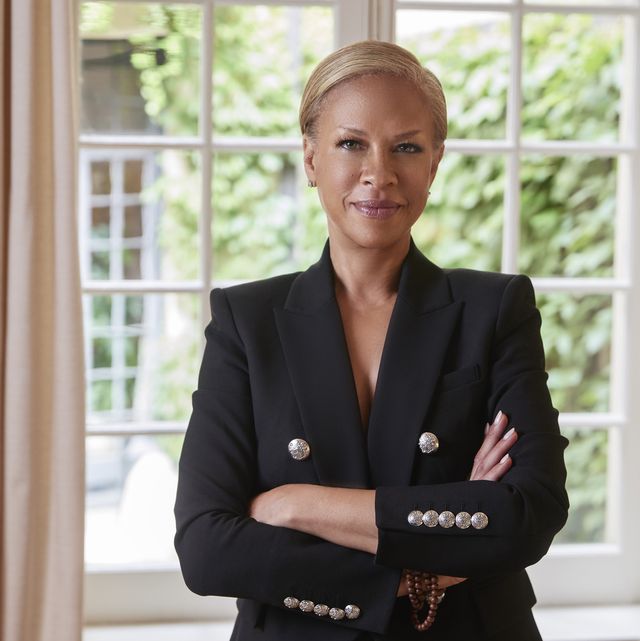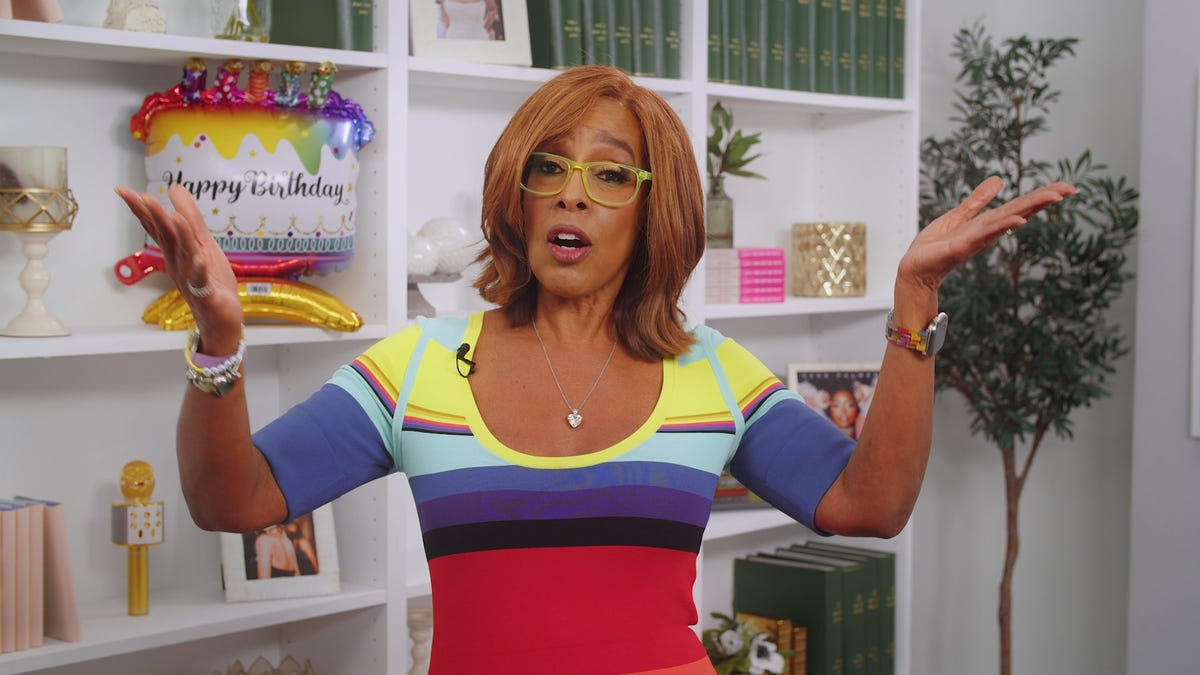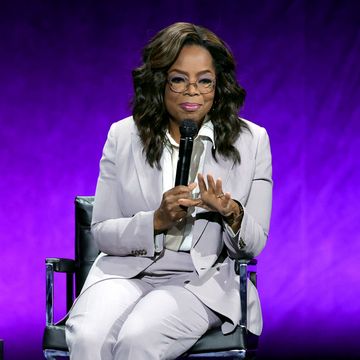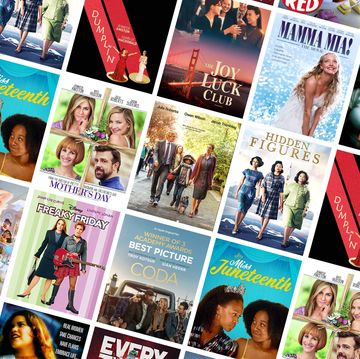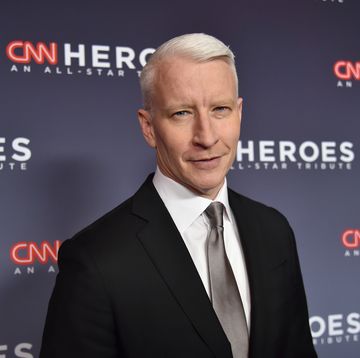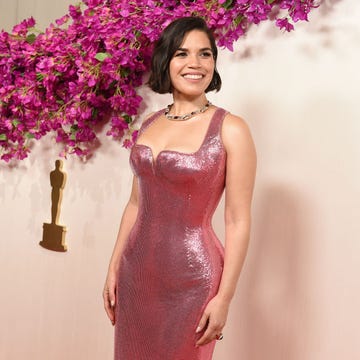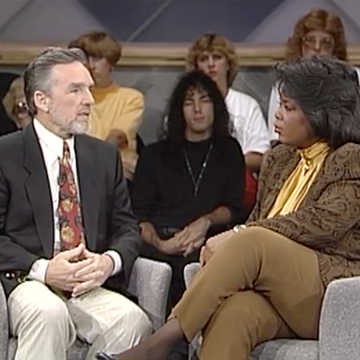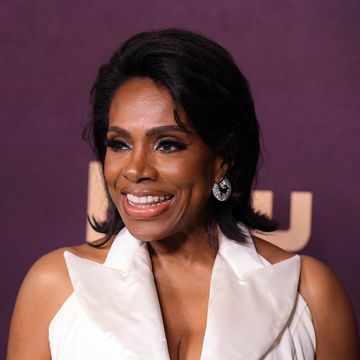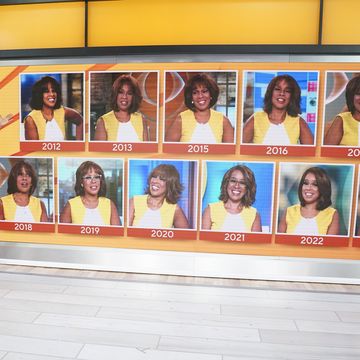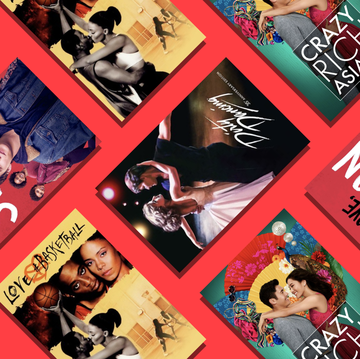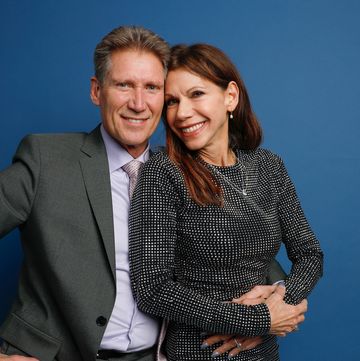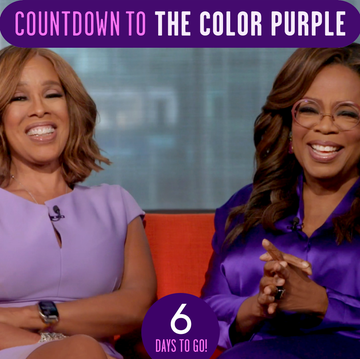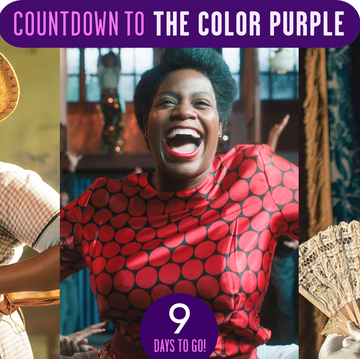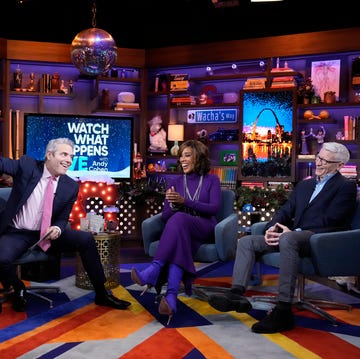When a woman dies in childbirth, How did this happen? is likely the first question sideswiped family members ask. Horrifyingly, the number of families who find themselves in this situation is growing: In 2020 (the last year for which the CDC provides stats), the U.S. maternal mortality rate rose to 23.8, from 20.1 in 2019, with Black women nearly three times as likely to die as white women.
That’s just one reason the title Aftershock is so fitting for the recently released documentary women’s health advocate Tonya Lee Lewis codirected and coproduced with Paula Eiselt. The film shines a light on Omari Maynard and Bruce McIntyre, who both lost their partners in childbirth and went on to turn their grief into advocacy and activism. How can we prevent these avoidable deaths? is the question they are now working to answer, as is the documentary itself.
Lee, a former human rights attorney, first began asking herself this question when she became a spokesperson for the U.S Department of Health and Human Services Office of Minority Health. When her children’s book Please, Baby, Please—coauthored with her husband, Spike Lee—was released, they asked her to help raise awareness about infant mortality. Lee soon found herself engrossed in the women’s health world, which led her to increasingly engage in conversations around maternal mortality, and Black maternal mortality specifically.
Starting even more conversation is what she ultimately hopes this project will achieve: “We all have a role to play” in solving this crisis, says Lee. “Black maternal health is not just a woman’s issue. It’s not just a Black woman’s issue. Black maternal health is an issue for all women. It’s an issue for men and extended families. Everyone is impacted when a woman dies—there’s a ripple effect.”
In an interview with Oprah Daily, Lee discussed what she learned while filming Aftershock, including what every woman can do to protect her health and ways we can all help combat maternal mortality.
What drew you to codirect and coproduce Aftershock?
I had just finished producing another film and met Paula Eiselt, my codirector and coproducer in the film. She was equally passionate about maternal health and Black maternal health. We met in November 2019, and Shamony Gibson passed away October 2019 [after giving birth to her son]. Shamony’s family held a celebration of life for Shamony called Aftershock. They sent an invitation out on social media, inviting people to come to the celebration, and to be in conversation about the Black maternal epidemic in this country. So we reached out, and Shawnee [Gibson, Shamony’s mother] and Omari allowed us to come and film. That really was the beginning of the film as it is—being there, seeing the celebration of life for Shamony. Seeing Omari engage in conversation with other men who have lost partners and wives in the situation. They became the backbone and the fabric of the film.
How did you develop enough rapport and trust with Omari and Bruce to get them to be so vulnerable and let you into the grieving space that they were in?
Bruce, similar to Omari, held a press conference in the Bronx almost a week after Amber passed away to demand accountability, but also to be engaged in conversation with the community about what is happening with Black maternal health in this country. They already wanted to have this conversation. We showed up, we talked to them, we listened, and we really just followed their lead. Myself, Paula, Shawnee, Omari, and Bruce were all passionate about the idea that Black women are dying from preventable causes from childbirth complications. We have to get the word out as much as possible.
Omari and Bruce represent an idea that is much talked about, of men showing up for Black women in this fight. Do you think that if we’re going to effectively combat maternal mortality, the onus has to be on people other than Black women?
Well, I think that Black maternal health is not just a woman’s issue. It’s not just a Black woman’s issue. Black maternal health is an issue for all women. It’s an issue for men, and extended families. Everyone is impacted when a woman dies—there’s a ripple effect. It is incumbent upon everybody to figure out what they can do. The healthcare system and healthcare providers have a major role they’re going to have to figure out. Black women have to arm ourselves, be in conversation, and think about how we navigate the system and find the best situation for ourselves. Then everybody else has to figure out what they’re doing as well, to make for better outcomes.
In the film, Bruce was working on an initiative to build a birthing center in the Bronx, and there’s the story of the woman who gave birth in a birthing center, as well. Do you think new spaces outside of hospitals where we can reimagine what giving birth looks like is another way to combat maternal mortality?
I think that in general in the United States, we have to reimagine what birth looks like. Every woman in every family has to figure out what is the best birthing situation for her, because it’s not a one-size-fits-all. For some people, a hospital is the right birthing space, and they should be able to do that. For others, a birthing center with midwives and doulas is the right space. And for others, it could be at home, with the right support. So I think it’s really about making sure women understand that there are choices out there and that each individual has to find the right support for her.
Do you think that this film is particularly timely, in light of Roe v. Wade being overturned?
The fact that we’re still talking about the autonomy of women’s bodies, I do worry. I believe there was a study that just came out that said with the overturning of Roe v. Wade, we’re going to see more maternal death. I do see that coming. I see delayed care for women. I see poor care for women. I see the potential for the criminalization of women. If you have a miscarriage, and there’s a question about that. So I do worry very much about this decision, and the impact it’s going to have on women, especially Black women. We know that laws are applied in unequal ways. I think this will harm us more than others. It’s a dark day. But I remain optimistic because the fight’s not over.
What do you hope people take away from this film? Any actions you hope are inspired as a result of watching it?
I hope people come away ready to have lots of conversations about lots of different things. I’m gratified because there are conversations that are [already] happening that I wouldn’t have even anticipated. Like men talking about paternal mental health. I hadn’t really thought about that as something that would come out of this film. So I don’t know that I have a specific takeaway for people, other than to figure out where they fit and plug into this conversation about maternal health and, in particular, Black maternal health in this country.
I believe we all have a role to play in some way and some form. It can be as simple as finding the best birthing option for you. It could be supporting Bruce and his birthing center. Or the Womb Bus that he now has in the Bronx, which is women’s healthcare on wheels. Or it could be supporting Shawnee and Omari and their ARIAH Foundation, which is about art and healing. Or it could be about getting out in the streets and doing the work. I think it’s just a matter of figuring out where you fit in.
In the film, Shawnee Gibson, an activist and social worker, spoke about having worked in the reproductive health space prior to her daughter’s death. Yet, that wasn’t enough to combat the situation affecting her own family. Aside from education, are there any other tangible tools you would recommend to women who are pregnant or thinking about it to implement into their medical care?
It’s such a hard thing because Shamony [and her family] did everything they could do. But I would [still] say, try to educate yourself as much as possible. Be a consumer when it comes to your healthcare provider. Really make sure the person who is interfacing with you is somebody who you feel really good and comfortable with. Even if it’s down the line, if they don't feel like they’re the right person, you can still pivot and find the right healthcare provider. Yes, sometimes it’s hard. Yes, sometimes it takes time. Yes, you don’t feel like doing it. But it could be helpful to you.
Try to make sure you have the right support around you and the right advocacy for you, so you can birth in the way that is best for you. The other thing to really be on alert for is postpartum care. Pay attention to how you’re feeling, and if you’re not feeling right and someone blows you off, demand that they pay attention, or go find somebody who will.
Do you have any updates on how Omari and Bruce have been doing since you wrapped filming?
Omari and Bruce are doing really great. The kids are growing and are beautiful. Omari talks about how the community has really come out in support of him and his family and just how healing that has been. He’s been able to share in that, by reaching out to other fathers. He and Bruce were just recently at the White House, talking to groups of men. And they have initiatives that they’re working on together. Bruce, as I mentioned, has the Womb Bus in the Bronx. He continues to work on getting the birthing center open, and I’m sure he will do it. He worked on legislation in New York State, so that we could have midwife-facing birthing centers. They both just keep working. I expect to see a lot from them.
This interview has been edited and condensed for clarity.

Cailey Griffin (She/Her) is the Editorial Assistant to Oprah Daily’s General Manager. In addition to assisting the GM, she also writes for Oprah Daily. She holds a Master of Science degree in journalism from Columbia University. She has interned at 60 Minutes, NBC News, and her work has appeared in Foreign Policy magazine. Outside of Oprah Daily, she can be found running around Harlem or listening to the Wicked soundtrack on repeat.
